More than 100,000 Physician Assistants (PAs) currently practice medicine in the United States, providing care to countless patients in a vast array of settings. Here at NEJM Knowledge+, we salute Physician Assistants and the vital role they play in health care today. As part of National PA Week, which takes place October 6 to 12 each year, we reached out to PAs, asking them to tell us in their own words what led them to their chosen profession, what being a PA means to them, and what they wish the general public knew about PAs.
Why Did You Choose to Become a PA?
Phillip Maxwell, MPAS, PA-C, Emergency Medicine, tells us:
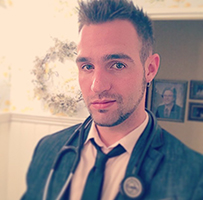
The PA career turned my head for several reasons. First, PAs have most, if not all, the responsibilities that physicians do. These include taking medical histories, eliciting physical exams, ordering and interpreting lab work, managing patients through follow-up, prescribing medications, and participating in diagnosis and patient education. Second, PAs are always working alongside a physician, and this has always been comforting to me — to know that no matter how long I remain in practice, I will always have a guide to help me reach sound clinical decisions that are best for my patients should complex cases present themselves. Last and most important, PAs have the unique opportunity to laterally transition to any field of medicine they choose. Unlike MDs, DOs, or NPs, PAs can traverse all fields without having to re-enter a residency or postgraduate training program. For example, a PA can work in emergency medicine for 5 years and then move into cardiology if he or she wanted a change.
Bianca Belcher, MPH, PA-C, Neurosurgery, and author of the Physician Assistant, Finally There blog, says:
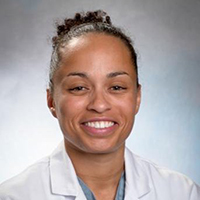
I was on the path to medical school when I came in contact with a group of orthopedic PAs. They took excellent care of their patients in an outpatient setting and were able to spend time in the operating room, which amazed me.
Harrison Reed, PA-C, Emergency Medicine, offers a vivid metaphor to describe his chosen career:
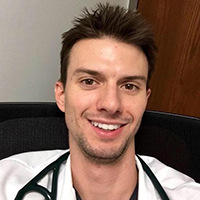 I have always admired explorers, those brave enough to drive a covered wagon westward, set sail across an ocean, or strap themselves to a rocket aimed at the moon. Risk the unknown to find the true boundaries of your world — that attitude has always graced my historical heroes. And it permeates the PA profession.
I have always admired explorers, those brave enough to drive a covered wagon westward, set sail across an ocean, or strap themselves to a rocket aimed at the moon. Risk the unknown to find the true boundaries of your world — that attitude has always graced my historical heroes. And it permeates the PA profession.
When I became a PA, I joined the ranks of living pioneers. The PAs that came before me, unafraid to push through obstacles, saw themselves reach new heights of academia, military leadership, and health advocacy. Their footprints trace from the smallest rural clinics to the halls of the White House. Not bad progress for a handful of Duke-trained clinicians who, a few decades ago, had no sure place in the world.
Stephen Hanson, MPA, PA-C, DFAAPA, Plastic and Reconstructive Surgery, and past president of the AAPA, says:
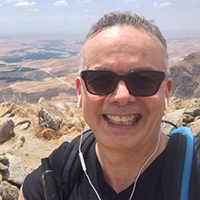 I like to think that the PA profession chose me. In the late 1970s, I trained to become a mobile intensive care paramedic. Around that time, some of my paramedic peers were going into this new profession at Stanford University Medical Center, now known as the PA program. The PA profession was created to address a shortage of quality medical providers, and as I researched it and got more information, I realized that it was the next logical step for me. Medical school provided some financial limitations and concerns, but becoming a PA would allow me to practice medicine and follow my passion for health care. I was very fortunate to qualify to be trained under the Comprehensive Health Manpower Training Act of 1971, which fully funded my education.
I like to think that the PA profession chose me. In the late 1970s, I trained to become a mobile intensive care paramedic. Around that time, some of my paramedic peers were going into this new profession at Stanford University Medical Center, now known as the PA program. The PA profession was created to address a shortage of quality medical providers, and as I researched it and got more information, I realized that it was the next logical step for me. Medical school provided some financial limitations and concerns, but becoming a PA would allow me to practice medicine and follow my passion for health care. I was very fortunate to qualify to be trained under the Comprehensive Health Manpower Training Act of 1971, which fully funded my education.
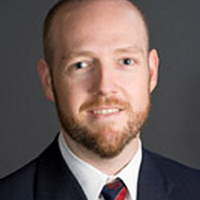
Sean T. Robinson, DHSc, PA-C, and Assistant Professor in the PA Program at The George Washington University, says:
During and after college, I struggled with trying to decide between a life in the basic sciences or in the clinical arena. After years of going back and forth between the lab bench and the bedside, I finally committed to patient care. But by that time, I was in my late 20s, and the thought of spending 7 or more years in school to become a physician was daunting. Having shadowed PAs, NPs, and MDs, I was familiar with all three professions and felt that PA was the best option for me at that time in my life. I’m glad I made that decision — it’s one I’ve never thought twice about since my first day of PA school many years ago.
Paul Kubin, MS, PA-C, Primary and Urgent Care, and author and editor of Inside PA Training, recalls:
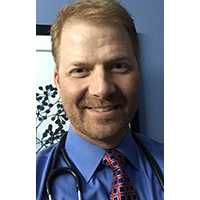
For me, like many, it was a practical decision. I had three young children and a wife who was very committed to her career. I wanted to be in medicine, making treatment decisions with patients, but I feared what medical school and residency might do to our family. A PA career was a path that my family could handle, and one that I knew I would love.
What Does Being a PA Mean to You?
Bianca Belcher:
Being a PA allows me to be an integral part of the clinical care team. I work very closely with surgeons, fellows, and residents on a daily basis to provide great care for my patients. In addition, I am able to teach residents and students not only about medicine but what being a PA is all about.
I absolutely love the versatility of my job. I am currently involved in clinical care (inpatient, outpatient, and procedures), clinical research, education, quality improvement, and practice growth. Although neurosurgery is a passion of mine, having the flexibility to change specialties is very appealing.
Stephen Hanson:
It’s a wonderful profession that is both fulfilling and challenging in the most positive sense. I’ve been given the sacred honor and duty to make a difference in my community and in the lives of my patients in the practice of medicine, and as their provider of health care. This duty is not for everyone, and it can be frustrating and depressing at times. On the other hand, some of the highest highs that I have had in my life have been in helping my patients achieve healing, good health, and wellness. There’s no better feeling in the world.
Sean Robinson:
Being a PA means being part of an evolving health care system, one that relies on a team-based model of health care delivery. This intertwined, changing health care arena is well suited to the PA profession, one that prides itself on the ability to switch fields (e.g., emergency medicine, primary care, geriatrics, etc.) based on the needs of the system. This is really what it means to be a PA — adaptable and fully integrated into the health care delivery system.
Paul Kubin:
It’s about meeting patients wherever they are and inviting them into their own treatment. Patients are much more capable with health decisions than they’re sometimes given credit for. But in order to make those decisions, they need both information and context. They place tremendous weight on what we tell them, and it’s too easy to tell them, “You should do this.” It’s similarly unfair to leave it all to them by telling them, “The decision is yours.” My job is to have a conversation with them — one that allows them to see what I see, but through their own lens.
Phillip Maxwell:
Being a PA means I’m able to give back to my community each time I walk through the doors of my hospital. I currently work at a busy emergency room and level 1 trauma center in Queens, NY. I’m surrounded by a wealth of knowledge and continue to learn during every single shift I work, through my attending physicians, residents, NPs, and RNs. Each day or night when I leave, I feel a sense of completion that someone’s life has or multiple lives have been made better by me. Our patients in the ER may come and go, but they will remember you for a long while to come when in times of vulnerability. And that to me is worth the price of PA school admission.
Given that this is PA Week, What Would You Like the General Public to Know about PAs?
Stephen Hanson:
PAs practice medicine. We practice in every setting and specialty. PAs diagnose and treat patients, order and interpret tests, assist in surgery, perform medical procedures, and prescribe medications. A PA’s role can also include patient education and research, as well.
As America’s population continues to age and record numbers of patients face chronic conditions, the need for care from PAs will surge. Studies have demonstrated that when PAs practice at the top of their education and experience, they improve access to care, patient satisfaction, and patient outcomes.
Phillip Maxwell:
We take pride in the fact that we are dependent practitioners with a collaborating physician working as a team. We have chosen to become PAs and are proud of the care we provide our patients. We can be found in any field of medicine today and can even be seen first-assisting in the OR for most major medical surgical procedures. Lastly, one should know that the PA career has been named the number one career in the U.S. according to the 2014 Forbes annual job outlook.
Sean Robinson brings the added perspective of a PA educator:
I wish the public knew more about how PAs are trained and what goes into making someone a “good” PA. As a PA educator, I’m thrilled that my profession continues to be touted as one of the best health care professions in which to be employed (in Forbes, U.S. News & World Report, and other publications). Accolades in the popular media bring impressive increases in applications to PA programs across the country, implying a growing interest in the field. However, this label of employability as a PA is often sold to the public as high income for low cost of education. While that may be true, there’s more to becoming a good PA than simply getting into and finishing PA school.
Those who excel in the profession are dedicated to optimal health care delivery, increasing access to care, and making the health care team the best it can be. This comes with experience outside of the classroom, such as working as an emergency department tech at a hospital in a medically underserved area or as a medical assistant for a surgeon that does annual pro bono medical mission trips to third world nations. Experiences like these — that occur before even stepping foot into PA school — help shape the profession into what it is today. I think if the general public were more aware that most PA programs require some degree of previous clinical work prior to matriculation, then they would appreciate what we bring to the table — a diversity in experience that adds to the overall quality of the team.
Bianca Belcher:
PAs are trained in the medical model much like physicians. We as a profession are dedicated to increasing access and providing top level care to every patient.
Paul Kubin:
My hope is always that they will see our love for what we do, our very intentional choice to become PAs, and our simultaneous respect for physicians.
What are your experiences as a PA? Please let us know in the comments.
About the Contributors
- Bianca Belcher, MPH, PA-C, practices in the Department of Neurosurgery, Brigham & Women’s Hospital and blogs about the profession at Physician Assistant, Finally There.
- Stephen H. Hanson, MPA, PA-C, DFAAPA, specializes in Plastic and Reconstructive Surgery, and is a past president of the AAPA. He would like to acknowledge the input of the American Academy of Physician Assistants (AAPA) to his contributions to this blog post.
- Paul Kubin, MS, PA-C, practices in Primary and Urgent Care and is an author and editor of Inside PA Training.
- Phillip Maxwell, MPAS, PA-C, is a Physician Assistant in Emergency Medicine.
- Harrison Reed, PA-C, is a Physician Assistant in Emergency Medicine.
- Sean T. Robinson, DHSc, PA-C, is Assistant Professor in the Department of Physician Assistant Studies, The George Washington University.
More from NEJM Knowledge+ and NEJM Group:
How to Become a Physician Assistant (PA-C)
Why and When to Consider Taking a PANRE Review Course
NEJM Knowledge+ Family Medicine Board Review – for Physician Assistants
In Practice — a new Journal Watch blog by physician assistants and nurse practitioners — for all health care providers



PAs are medical trained and licensed practitioners of medicine who practice the standard of medicine autonomously and in collaboration with physicians and other members of the healthcare team to promote, maintain and restore human health through the study, diagnosis and treatment of disease, injury and other physical and mental impairments … the same as physicians do.
PAs are well trained providers of healthcare who are trained in the “sick model” of patient care the same as physicians are. We take the same science and medical courses at the same level of training and do the same clinical rotations as physicians do. We are state licensed and nationally certified in primary care. We maintain our certifications the same way physicians do.
You find PAs working in every specialty and sub-specialty and providing the same high quality of care as physicians do.
I chose the PA Profession over traditional medical training not as a short cut to training but for the flexibility and the less cost and quicker time to practice.
NEJM … thanks for asking …. Bill
I was a combat Medic attached to a Special Forces group in Vietnam from 1966-1968. SF medics received excellent training in their two military specialties and then as members of a team, they learned each others job therefore they were part of an interdependent team. The PA profession was founded on a field of blood as the initial PAs were former Corpsmen and Medics in the armed forces. After training we were engaged in every as aspect of medical care and became extremely proficient in medicine and surgery, often providing both by themselves without physician supervision.
I was an early PA and appreciated the comradre of having a collaborating physician in our private practice and we are still working together after 44 years. I also served 16 years in emergency medicine and 3 years thus far in Urgent Care. I started looking into medicine when as a six year old kid I saw one of my friends hit by a motor vehicle and the adults standing around doing nothing. I tried to help him but didn’t have even the basics as I don’t remember Cub Scouts teaching first aid.
I am still in surgery and urgent care and have found full satisfaction knowing that I help people daily and that my community calls me ” Doc” just like medics were called by their men in wartime. Thank you for helping us evolve to what we are today. Bob Blumm, MA, PA, DFAAPA
Thanks, NEJM for portraying PAs in a positive light during their national PA week, sharon bahrych, pac, mph
As a nationally certified PA of 22 years, having worked in areas from Family Medicine to Interventional Radiology, from Correctional Medicine to In-Patient Med/Surg and Critical Care, it is the patients that make practicing medicine rewarding for me, and especially the chance to change the course of their health for the better, whether it is teaching them better ways to quit smoking, or how to use OTC medication either to prevent the need for antibiotics with colds, or to enhance the effects of the antibiotics if they have an infection which requires them. Improving the quality of life as much as possible for each patient for whom I provide care, is the best part of my day.
The PA profession has grown and changed in many ways since both its inception in the 1960’s, and since my beginning days in PA school; but I think that the commitment to the needs of the patient as an individual has always been at the core of the profession, and I hope (and think) that it will always be the core.
The question of PA autonomy has been raised, and although my training was always aimed at producing a supervised practitioner, as time out of school has passed, and the demands of patient care have increased, both the amount of supervision I have required, and the amount available have decreased dramatically, and for approximately the past 10 or so years, my actual supervision has been distant, delayed, and indirect, and neither the quality of patient care, nor patient outcomes have suffered or been affected in the least.
As a result, I have come to believe that once a certain level of competance has been reached and demonstrated, a given PA’s practice should be allowed to be relatively autonomous, at least as much as any given provider actually has any autonomy in today’s highly regulated and litigated practice environment.
As a new nurse in 1974, the PA staff at my community hospital were the ever – present life line for our patients. We counted on them to help us through every emergency. There were no smart phones, computerized algorithms, and after hours, we had to wait for the answering service to reach the attending physician. I will always hold them in the highest regard. They inspired me to go on to become a nurse practitioner. My opinion has only grown stronger over the years.
Elayne DeSimone, PhD, NP-C, PA
The most positive outcome of the Vietnam war was the birth of the PA profession. I was one of those early corpsmen that had the opportunity to use the skill sets I had from the service to further my education as a PA. I have had the opportunity to work in medical education, emergency medicine, disaster medicine, psychiatry and occupational medicine for the last 40 years. I have had the pleasure of being able to educate medical students, physician residents, nurse practitioners and PAs. They all have one vital component in their core competencies – they will forever care for people. After the military I worked in free clinics with dedicated women and men who offered one or two days a week to provide health care to those in need. They grounded me in humanistic values that Carl Rogers once called “patient centered beliefs” The men and women today have better training and better technology but still need to focus on caring for people which is never an easy task given the suffering we all see everyday. If I could offer any advice I would suggest that we once again let the men and women (often forgotten) that have gained awesome new competencies in saving lives during more than ten years of war be offered a bridge into the medical profession wherever they feel a niche. Over thirty years ago the PA profession started from a wartime experience and offered veterans a chance at becoming what I define as “LIfesavers then.. Caregivers for The Future”.
Very well stated and the truth or the juxt of the message is that PAs see this as a calling and go n to maintain a practice even after their retirement because they honestly feel for their patients. Great commentary Ken Harbert. Bob Blumm
NEJM, thank-you for this positive peice.
I have been a PA for over 30 years, have practiced mainly in psychiatry, like most PAs I did not become a PA to shorten study but to optimize my time and options. I did plan on rural practice but got drawn to psychiatry.. I have embraced “supervision” aas a form of learning, although have grown more autonomous over the years There is such a need and so much to be done in providing parity of access to those with mental illness. I am proud that I help seriously ill patients, train student PAs and post-graduate NPs and PAs in psychiatry through a training program in the department of psychiatry where I have worked for some years.We need more trainees and hope to collaborate with primary care systems in the near future
I am so glad I choose this profession.